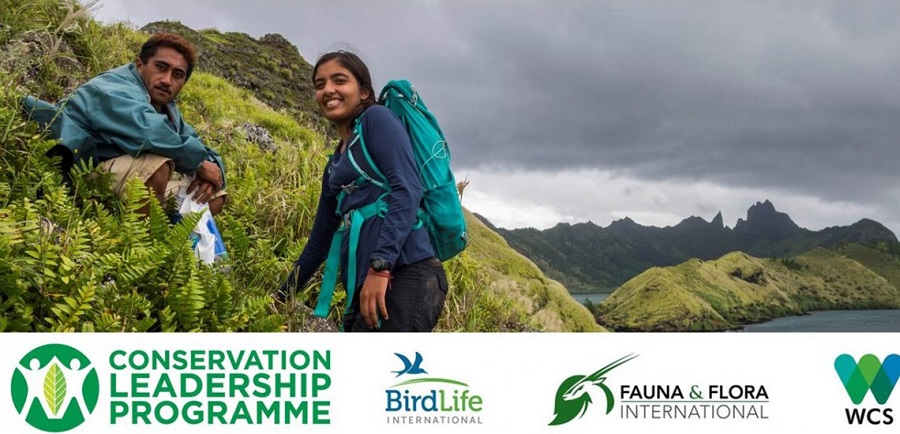Deadline: October 10, 2023
Applications are open for the CLP Future Conservationist Awards 2023. The Conservation Leadership Programme (CLP) is a training and capacity building programme that targets individuals from developing countries who are early in their conservation career and demonstrate leadership potential.
As a partnership initiative between BirdLife International, Fauna & Flora International and the Wildlife Conservation Society, CLP builds the leadership capabilities of early-career conservation professionals working in places with limited capacity to address high-priority conservation issues. The partner organisations believe that the programme’s success can be attributed to the fact that it goes beyond grant giving, providing ongoing support and access to networks that help awardees gain skills and move up the conservation career ladder.
Since 1985, CLP has supported and encouraged thousands of individuals who are early in their conservation career and are aiming to address global conservation priorities at a local level. CLP has been an important steppingstone for many individuals and has helped to facilitate the discovery of species new to science, the designation of new protected areas, knowledge sharing and collaboration, and the creation of mechanisms for long-term conservation, such as the establishment of local non-governmental organisations and creation of conservation policy and action plans.
Award
- CLP offers Future Conservationist Awards of up to US $15,000 each to develop leadership capacity of early-career conservationists who want to make a positive difference on the ground.
Eligibility
To be eligible for a CLP Future Conservationist Award, the team and project must meet the following eligibility criteria.
Team
- CLP Awards are for team-based conservation projects – each team must have at least three people.
- 50% or more of the team members must be nationals of the country where the project is taking place.
- The team leader must be a national of the country where the project is taking place. Co-leadership with a non-national will be considered, subject to clear justification.
- All team members must be early-career conservationists with no more than five years of work experience in the conservation sector. ‘Work experience’ does not include research for a university degree. Individuals who have more than five years of work experience in the conservation sector are not eligible for CLP support and should not apply.
- No team member can be a part- or full-time paid employee or contractor with a CLP partner organisation, including BirdLife International, Fauna & Flora and the Wildlife Conservation Society, at any time from project development through to implementation.
- Any team member volunteering at a CLP partner organisation at the time of application and/or project implementation MUST be declared in the application. They also need to explain how the CLP proposal differs from the partner organisation’s work.
- Applicants can participate in only one CLP project at a time and in no more than three Future Conservationist Award projects in total, serving as team leader for no more than one Future Conservationist project.
Project
- CLP offers support to early-career conservationists living and working in low- and middle-income countries in Africa, Asia, the Pacific, Latin America and the Caribbean, Eastern and South-eastern Europe and the Middle East. The project must take place in one of the eligible countries.
- The project duration must be no less than three months and no more than one year in length.
- The total funding request from CLP must not exceed US $15,000 and CLP funding must cover at least 50% of the total project budget.
- The project must focus on globally important species for biodiversity conservation that are at risk. We consider a species to be ‘at risk’ if it is designated as globally threatened (CR, EN, VU) or data deficient (DD) by the IUCN Red List OR if there is information suggesting that urgent conservation action is needed.
- For those projects focusing on multiple species and/or taxonomic groups, at least one species in each taxonomic group being studied must be at risk.
- The project must be for new work rather than the continuation of an ongoing, established project.
- Applicants must demonstrate that the proposed project goes beyond academic research being carried out for any team member’s degree.
- Projects that involve laboratory analyses must justify why this work is critical and urgent for conservation.
- The proposal must be written by the applicants themselves.
Application
Applications must be submitted by the deadline Tuesday, October 10, 2023. Applications emailed to CLP will not be accepted.
For more information, see Guidelines and visit CLP Future Conservationist Awards.

